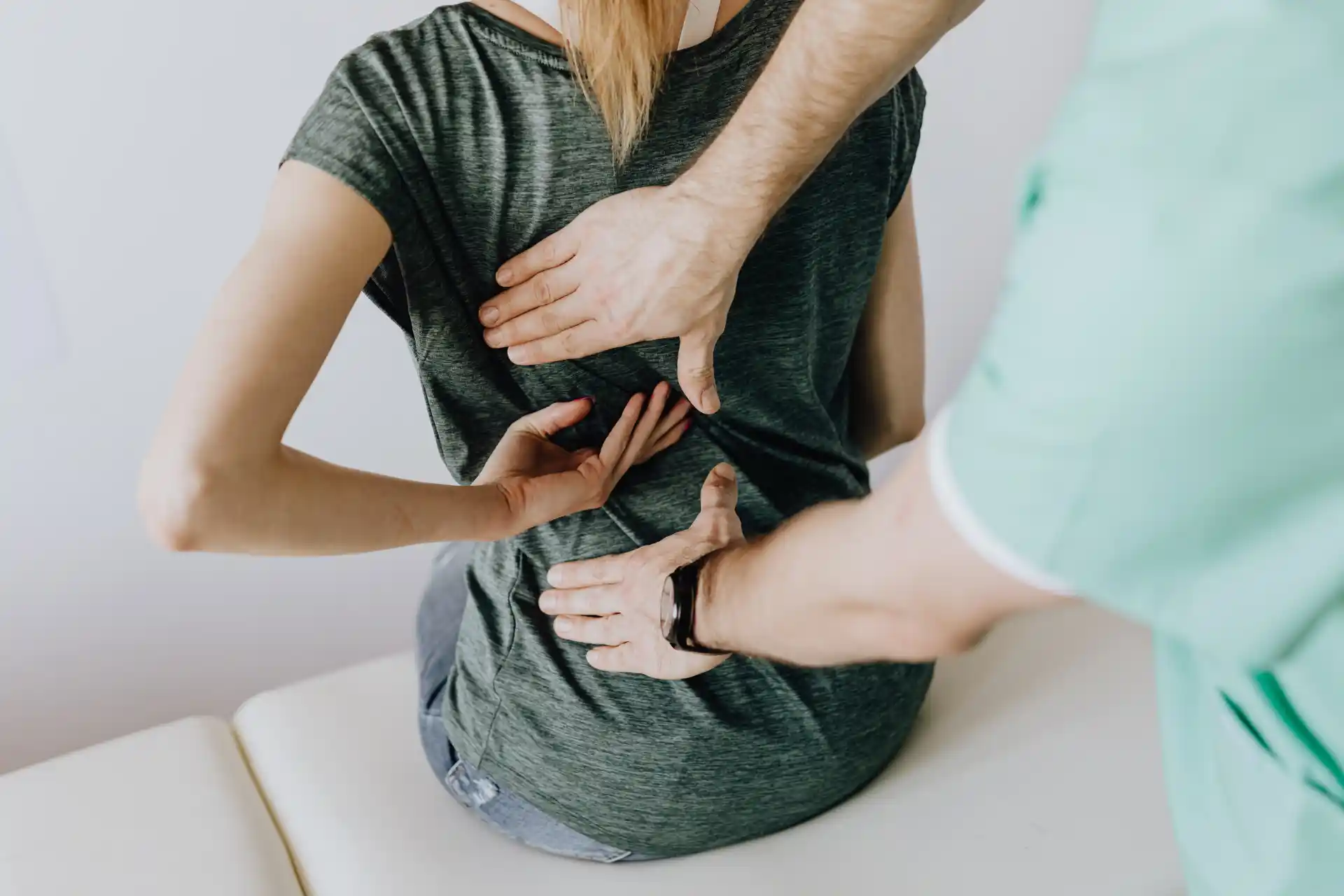Understanding Knee Pain
Impact of Knee Pain on Daily Life
Knee pain can significantly affect your daily activities and overall quality of life.
Climbing stairs, bending down, and even walking can become challenging tasks. The discomfort can interfere with your ability to perform everyday tasks, making it difficult to stay active and mobile.
Knee pain may sometimes require urgent medical attention, especially if caused by a major injury or underlying illness. Minor, ongoing knee pain should not be ignored either, as it can lead to chronic issues that might affect your sleep and other aspects of your life (Mayo Clinic).
Factors Leading to Knee Pain Going Down Stairs
Knee pain while descending stairs can be attributed to several factors. The mechanics of moving downstairs increase stress on the knee joints, which can lead to discomfort and pain, particularly if there are any underlying issues.
- Soft Tissue Injuries: Damage to the ligaments, tendons, or muscles around the knee can impair knee function and lead to pain while moving downstairs.
- Body Weight: Extra body weight adds stress to the knees. The more weight you carry, the greater the force exerted on your knee joints, exacerbating pain.
- Mechanical Stress: The act of bending the knee sharply places considerable load on the knee joint, which can be uncomfortable if there is any existing damage. This bending force is more pronounced when moving down stairs compared to walking on flat surfaces.
Other Common Causes of Knee Pain
Various other conditions can lead to knee pain during daily activities. These may include:
- Patellofemoral Pain Syndrome (PFPS): Often known as runner's knee, PFPS causes pain around and behind the kneecap, especially during activities like stair climbing. Hip and knee strengthening exercises have been shown to be effective in reducing PFPS-related pain and improving activity levels.
- Arthritis: Cartilage degeneration due to arthritis can lead to friction and pain in the knee joint, making activities like descending stairs painful.
- Tendon Inflammation or Damage: Conditions like patellar tendinitis and IT band syndrome involve inflammation or damage to the tendons around the knee, resulting in pain during movement.
- Increased Force on Knee Joint: Descending stairs can exert a force several times your body weight on the knee joint, aggravating any pre-existing conditions and causing significant discomfort.
- Osteoarthritis: This degenerative joint disease leads to the deterioration of the cartilage cushion within the knee joint. The resulting bone-on-bone friction can make activities like descending stairs painful.
Seek medical attention if knee pain occurs after a forceful impact or if the joint appears deformed. Additionally, chronic knee pain that disrupts sleep or daily activities should be evaluated by a healthcare professional.
For more information on related knee conditions, check out our articles on sharp knee pain, inner knee pain, runners knee, patellofemoral syndrome exercise, and patellar tendinopathy.
Understanding these factors and conditions is essential for managing and potentially alleviating knee pain when descending stairs.
Treatment and Management
Self-Care Tips for Alleviating Knee Pain
For those experiencing knee pain going down stairs, self-care measures can significantly alleviate discomfort:
- Rest and Activity Modification: Reduce or avoid activities that exacerbate your knee pain. Rest is crucial in allowing your knee to recover.
- Ice Application: Apply ice to the knee for 15 minutes several times a day to reduce swelling and numb the pain.
- Compression and Support: Wearing an elastic sleeve or knee brace can provide additional support, helping to stabilize the knee joint and alleviate pain.
- Elevation: Elevate your leg when resting to decrease swelling.
- Pain Management: Over-the-counter pain relievers like acetaminophen or ibuprofen can be effective. Check out our recommendations on what is the best painkiller for knee pain.
- Exercises and Stretches: Engage in specific exercises for knee pain and stretches for knee pain to strengthen the muscles around the knee and enhance flexibility.
For further tips and advice on managing knee pain through self-care, check out our articles on exercises for knee pain, stretches for knee pain, and knee strengthening exercises.
Medical Interventions for Knee Pain Relief
When self-care isn't enough, professional medical interventions may be necessary for those suffering from knee pain while descending stairs:
- Physical Therapy: If self-care doesn't lead to improvement within two to three weeks, consulting with a physical therapist is recommended. Therapists can design individualized treatment programs to address specific symptoms.
- Orthopedic Specialist: For persistent or severe cases, consulting an orthopedic specialist for tailored treatment plans, which may include steroid injections or surgical options, is advised.
- Regenerative Treatments: Options like regenerative knee treatment or regenerative therapy for chronic patellofemoral pain can be explored for long-term relief.
- Surgical Interventions: In severe cases, procedures like arthroscopy or knee replacement might be necessary. Non-surgical options can be effective too, as discussed in knee repair without surgery.
These treatment options should be treated as a general guideline, always consult with a healthcare professional for personalized guidance on medication, exercise, and treatment that is right for your knee pain.
By exploring a combination of self-care practices and professional interventions, you can find the most effective strategy to manage and alleviate knee pain going down stairs.
Seek RELIEF®
RELIEF® is a science-backed, targeted approach that targets dysfunctional fascia that surrounds the affected knee tendons.
The treatment utilizes hydrodissection—a fluid-based technique that gently separates and releases adhered soft tissue layers and fascia, which may contribute to knee pain and degenerative joint symptoms.1,2,3,4,5,6,7
RELIEF® is a minimally invasive alternative to traditional treatments—and requires no steroids, medication, surgery, anesthesia, or post-procedure immobilization.
Contact us today to schedule a consultation and learn more about how RELIEF® may help with your knee pain.
%20(1).webp)





.svg)